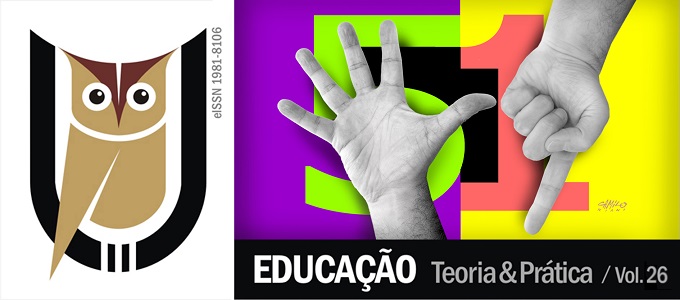Reflecting About PIBID in Times of Deprofessionalization Teacher
DOI:
https://doi.org/10.18675/1981-8106.vol26.n51.p167-182Keywords:
formação inicial de professores, desprofissionalização docente, PIBIDAbstract
The paper discusses the current context of teaching in the country, highlighting the difficulties faced by teachers in the exercise of their profession, generated by educational policies geared to external evaluations. Given this, many teachers have felt the loss of autonomy and professional identity, resulting in the teaching deprofessionalization phenomenon. The objective is to reflect on public policy to encourage initial teacher education, the PIBIB (Institutional Program Initiation Purse in Teaching), in the current context of teaching deprofessionalization. For this, we present a theoretical reflection based on Françoise Lantheaume, Claude Lessard, Christian Maroy, Marli André, Bernadete Gatti, Dalila Oliveira, Isabel Lelis, among other authors. It points out that the PIBID, although it is a policy linked to the Education Development Index (IDEB), can promote the initial training of teachers in a critical perspective. Keywords: teacher deprofessionalization; initial teacher training; PIBIDDownloads
Additional Files
Published
How to Cite
Issue
Section
License
Authors who publish in this journal agree to the following terms:
a) Authors assign copyright to the journal, with the work simultaneously licensed under the Creative Commons Attribution License that allows sharing of the work with acknowledgment of authorship and publication in this journal.
b) The policy adopted by the Editorial Committee is to assign copyright only after a period of 30 months from the date of publication of the article. After this time, authors interested in publishing the same text in another work must send a letter to the Editorial Committee requesting the release of the assignment of copyright and wait for a response.
c) This journal provides public access to all its content, since this allows greater visibility and reach of published articles and reviews. For more information on this approach, visit the Public Knowledge Project, a project that developed this system to improve the academic and public quality of research, by distributing OJS as well as other software to support the public access publication system to academic sources. The names and email addresses on this website will be used exclusively for the purposes of the journal and will not be available for other purposes. This journal provides open any other party  This work is licensed under a Creative Commons License
This work is licensed under a Creative Commons License











